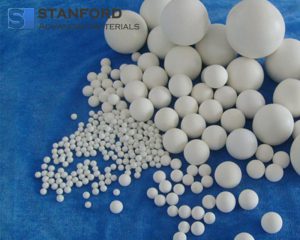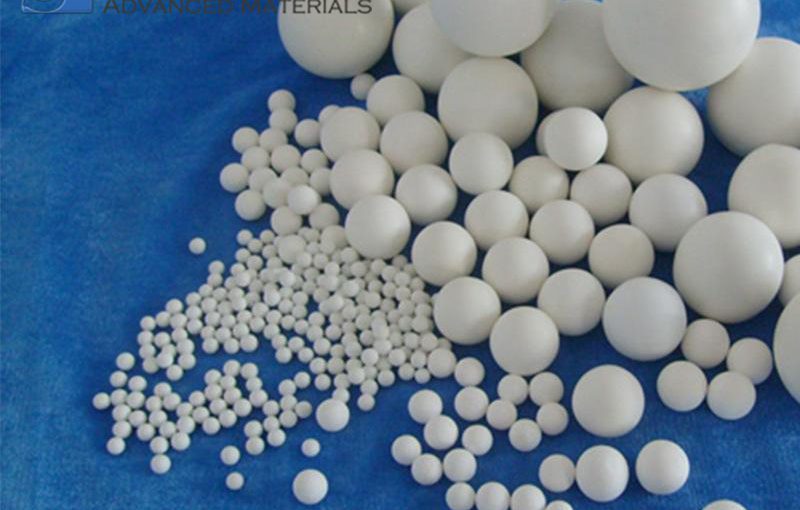Alumina (Al2O3) is a very common technical ceramic material. Zirconia (ZrO2), including yttrium stabilized zirconia (YSZ), is also widely used in machinery industries. Since both of them are oxide materials and could be sintered without vacuum, they share a lot in manufacturing equipment and have a similar appearance. However, there are still quite a lot of differences between these two materials.
Price: alumina VS zirconia
The most significant difference between these two materials is the price. Cost for zirconia is more than doubled for even the best alumina material. One of the reasons is the cost of the raw material. Compared with Zirconium, Aluminum is far more abundant in the crust and it’s much cheaper. On the other hand, Yttrium oxide, widely used as a stabilizer for Zirconia, is a rare earth element with limited sources.

However, it is the cost of shaping zirconia that contributes the major part. The density of zirconia is much higher than alumina and the wear resistance of zirconia is far better than alumina. To ground down the same thicknesses for zirconia takes almost 10x more time than alumina and consumes more diamond tools. Also, since the thermal shock resistance for zirconia is poor and requires a higher sintering temperature, the sintering process also costs more than alumina.
Applications: alumina VS zirconia
As the wear resistance for zirconia is much better, it is frequently used as mortar and pestles, grinding jars and grinding media, bearing balls and ceramic parts in valves and pumps. Zirconia parts will last longer in machines and have less contamination than grinding jars. Zirconia is generally better in mechanical applications but alumina is a better bulletproof material due to the lower density.
Although zirconia could withstand higher temperatures, application in industrial furnaces is rare. The advantage in working temperature is not quite significant, while the cost for zirconia is much higher.
High-density ZrO2 also provides better corrosion resistance. Zirconia could survive longer in a highly corrosive environment and is considered better material in chemistry laboratories.
Generally, zirconia performs better if the density and heat shock resistance is not considered. Stanford Advanced Materials (SAM) is a trusted supplier of customized zirconia products, such as zirconia rods, zirconia crucibles, zirconia tubes, etc. Please visit http://www.samaterials.com for more information.
